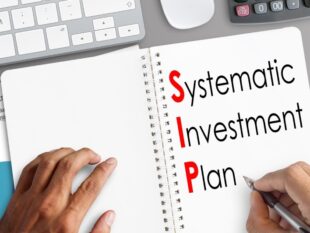4 Practical Ways Not To Go Flat Broke Before You Reach Retirement
by Abdul Aziz Mondal Financial Planning 11 December 2021

Benjamin Franklin once said a penny saved is a penny earned. But you wouldn’t know it today by the way we spend money. People often fail to realize that money is simply a tool that can be used wisely to your advantage or foolishly to your ruin. Because money is so important, it’s vital that we know how to use it and how to make sure we have enough of it to meet our needs. Fortunately, there are steps we can take to not go broke before reaching retirement.
4 Practical Ways Not To Go Flat Broke
1. Open A Savings Account
This is one of the most important money management lessons to learn. And although it sounds like something your grandfather would tell you, it’s incredibly practical. Opening and contributing to a savings account is a form of security. And it doesn’t have to be something that’s burdensome. You can contribute as little as $10 per paycheck to get things started.
One purpose of a savings account is so you’ll have money saved for a rainy day. You never know when unexpected car repairs or some other emergency will arise. Regardless, it’s always a good feeling to know that you have an emergency fund. And don’t forget that savings accounts earn interest.
2. Consider Investing
There are a number of different ways to invest money, and today it’s easier than ever with investment apps. Apps such as Acorns make investing incredibly simple. Once you’re signed up, you can have them invest a portion of your paycheck or even your spare change. You don’t even have to know anything about stocks, as Acorns will choose your investments for you.
You may also consider investing on your own. Although there is a learning curve when it comes to investing in stocks, you may find it worth your time. To advance your knowledge on investing, you can also access and browse Usenet, which has investment newsgroups for you to use as additional learning resources. Some other investment options you might consider are:
- Bonds
- 401(k) Plan
- Certificates of Deposit
- Real Estate
- Cryptocurrencies
3. Stay Out Of Debt
Rule of thumb: If you don’t have the money in the bank, then you shouldn’t go into debt to purchase it. Of course, few people have the cash needed to purchase something as expensive as a house. I’m talking more about things that aren’t necessities, like upgrading to a larger TV or getting the latest smartphone.
Stay away from credit cards when possible, unless you’re diligent about paying them off every month. Credit cards can be financial pitfalls when you consider interest rates and fees. Now that the pandemic has eased, credit card debt appears to be making a comeback. Don’t fall into the trap.
- That Includes Car Loans
Let’s face it, purchasing a vehicle is often a vanity project. We want the newest, the fastest, and the flashiest model available when a 10 or 15-year-old car would probably be just as reliable and serve our needs just as well. But financing a new car today could easily cost you $500 a month. Why not open a savings account and deposit the money you would’ve spent on the car payment until you have enough to buy an affordable used car.
When you consider a new vehicle’s depreciation and the amount of interest you’re paying on a car loan, you really are digging a hole for yourself financially. If public transportation is an option for you in your area that’s a better bet than going into debt for a car.
4. Give To Those In Need
You may wonder how giving to a charity will keep you from going broke. Well, you may already know that giving to charity is tax-deductible, so you’ll get the money back. What you may not know is that giving to charity can provide lessons on money management. Allotting money to charity says that you know what you have and how much you can afford to give. That’s called budgeting, and it’s indispensable to financial health and success.
Putting It All Together
Money might make the world go around, but not everyone knows what to do with money. Practices such as saving money, investing money, and not going into debt are important if we want to stay financially healthy and have something for our golden years. Although getting a handle on our spending habits can be difficult with all the pressures from today’s society, it is possible. Remember, a little discipline now will pay off later.
Read Also:







































































































